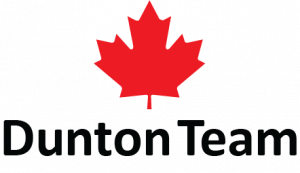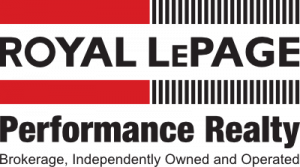Buying
Let’s talk! We give you a friendly behind the scenes tour of how we work! Hearing about your needs and wants helps us better help you. Getting to know you is our pleasure. We will join you in developing a realistic list of must-haves and nice-to-haves. Condo, new home, residential resale, we have expert advice to share. Is public transit a priority? How many bedrooms do you need? Bathrooms? Home office? A garage? Yard? Eat-in kitchen? Acreage? We consider your lifestyle and your stage of life and where you see yourself living.
Building your list of professionals is our specialty. We will give you options and recommendations, in fact, we work with the very BEST of the BEST!
Risk Management
Our goal is to reduce your risk and protect your resale while meeting your goals. Understanding intimate details about properties and potential maintenance issues is critical, as well as anticipating future expenses.
Trust in Real Estate Services Act, 2022 (TRESA)
Ontario law has changed and we embrace the changes! Pay close attention to representation and open offers: https://www.reco.on.ca/getmedia/da38cca5-8432-4018-821e-57260d6caebc/RECO-Information-Guide.pdf
Your Budget
Purchasing a home involves one-time costs and monthly expenses. The largest one-time cost is the down payment, which typically represents between 5 – 20% of the total price of the property. In addition to the actual purchase price, there are other one-time expenses that you might be expected to pay for.
- Confirm your down payment. The Home Buyers Plan lets first time buyers withdraw up to $35,000 over 15 years. The bigger your down payment, the less principal you will owe, and the less interest you will pay. Effective February 2016, for a purchase of $500,000 or more, 10% down is required. See https://www.canada.ca/en/financial-consumer-agency/services/mortgages/down-payment.html
- Plan for closing costs including insurance, legal fees, home inspection costs, land registration and land transfer fees. Budget for moving expenses and service hookup fees, they can add up surprisingly fast.
- Your monthly housing expenses (mortgage, taxes, heat, etc.) shouldn’t use up more than 32% of your income. (If your combined monthly income is $5,000, for example, 32% of that is $1,600.) If you have car payments or credit card debt, the rule of thumb is that debt repayment shouldn’t be more than 40% of your income. Your lender can help!
- Get pre-approved for your mortgage and confirm in writing your rate hold and qualification conditions.
- Build your budget – that’s where we can help!
Typical one time expenses | |
|---|---|
| Mortgage Application & Appraisal Fee (if applicable) | At time of application |
| Property inspection, septic and water inspections for rural properties | At inspection |
| Legal Fees | Closing |
Legal Disbursements
| Closing |
| Ontario Land Transfer Tax | Closing |
| Mortgage Take Over Fee (if applicable) | Closing |
| Adjustments for Utilities, Property Taxes, etc. | Closing |
| Mortgage Insurance | Optional |
RRSP withdrawals (up to $35,000 for each individual on mortgage)
Surveys are requested but not always mandatory with an offer. Every property is unique and has special considerations.HST is 13% and applies to services like commission renumeration, lawyers, accountants, inspections movers etc.
*HST can apply to new builds, new condos, substantially renovated homes. However, most builder prices include HST and any rebate is assigned to the builder. There are many factors in these calculations, every situation is different, we need to check EVERY time as to whether HST applies or not.
*Investment purchases have unique rules around HST if you do not occupy the property and it is not resale.
Monthly Expenses
- Mortgage payments
- Maintenance
- Home insurance
- Mortgage insurance (optional)
- Condo fees
- Property taxes, water and sewer (City of Ottawa)
- Utilities including heat, hydro, water/sewer etc.
Pre-qualification
Mortgage professionals will get you pre-approved and lock-in an interest rate for you for 60 – 120 days while you shop for your perfect home and keep you and your budget on track!
By locking in an interest rate, you are guaranteed to get a mortgage for at least that rate or better. If interest rates drop, your locked-in rate should drop as well.
Be ready for lots and lots of questions, the Canadian lending rules have changed. You will be required to share pay stubs, notice of assessments, proof of down payment and much more. A mortgage professional will explain to you the benefits of shorter or longer mortgage terms, the latest programs and mortgage products available, and recommend the best products that suit you and review all of the other costs involved with purchasing a home. Anticipated closing costs should be reviewed early with your mortgage broker, then again with your lawyer.
Listing alerts and your search
We develop an online matrix search from your basic criteria. We work together to find and follow-up on every possible opportunity. Together we attend showings and open houses. Your experience starts the minute you approach a property.
Making an Offer
As a client, we will:
- Research you selection including zoning, flood plains, surface water, permitted property use, highest and best use, taxes, RISK, and much more.
- Provide current market information
Recommend a strategy - Offer advice
- Prepare for competition – OPEN OFFERS ARE LEGAL IN ONTARIO – As a Buyer, you have options. If you do not want the contents of your offer disclosed, they don’t have to be.
- Recommend appropriate conditions
- Assist with finding the right professionals necessary to carry out the plan
- Advise you on issues that will assist you in making an informed decision
- Leave the talking to us! We will communicate your offer to the seller, or the seller’s representative, on your behalf. Sometimes there may be more than one offer on a property coming in at the same time.
Multiple offers are our specialty!!!
Elements of an Offer
Price
Depending on local market conditions, your opinion of value, and marketing research, the price you offer may differ from the seller’s asking price.
Deposit
The deposit shows your good faith and will be applied against the purchase of the home when the sale closes.
Terms
This includes the total price offered and the financing details. You may arrange your own financing or ask to assume the seller’s mortgage, especially if it has an attractive interest rate.
Conditions
These might include “subject to home inspection”, “subject to buyer obtaining satisfactory financing” or “subject to buyer selling their property” and many more. (see below)
Inclusions and Exclusions
These might include appliances and certain fixtures or decorative items such as mirrors, window coverings and tv mounts, murphy beds, etc. “Good working order” is an important statement to confirm in an inspection and on a final walk through.
Closing and Possession Date
Generally, the day the title of the property is legally transferred and the transaction of funds finalized unless otherwise stated. You usually get your keys late in the business day.
Firm Offer
Preferable to the seller, because it means that you are prepared to purchase the home without any conditions. If the offer is accepted, the home is sold firm and unconditional.
Conditional Offer
After acceptance, typical conditions include satisfactory financing, appraisal, inspection, insurance, and lawyer’s review depending on the property type. A conditional offer essentially means that you have placed one or more conditions on the purchase, such as “subject to home inspection”, subject to financing”, or subject to sale of buyer’s existing home”. The home is not sold until all the conditions have been met. Many offers also include special terms.
Have the Home Inspected
Having the property inspected by a qualified home inspector will give you the added confidence that you’ve made the right decision and to reduce your risk. (costs vary). An inspection should provide a full written report with photographs, documenting observations. Essentially the inspector investigates the condition of the house you’re thinking about purchasing, and identifies strengths, weaknesses, outline problems and concerns. Quality inspectors do not care if you buy the house or not, their job is to be objective and informative. If you have to make an offer before having a home inspection, make it conditional on a satisfactory inspection. If there are any problems during the conditional period, you have three options:
- Walk away.
- Use the results to negotiate a better price.
- Give the seller a chance to fix the problem.
Mortgage commitment
Once you’re approved, you’ll need to decide what type of mortgage works best for your needs. Will you go with a fixed or variable interest rate? Will your mortgage be closed or open? What will your amortization period be? Will you make payments monthly, biweekly or weekly? Your mortgage broker or lender can help you find a mortgage that suits your needs – and saves you the most money in the long term. Most lenders send an appraiser out to make sure the property is valued at the price you agreed upon.
Lawyer’s review
Some purchases should involve a review by a lawyer during a conditional period. Rest assured, we will advise you to seek the professional help and endeavour to anticipate potential issues. Lawyers will provide a pre-closing summary prior to completion.
Insurance
Sometimes a home requires an insurance condition to ensure it can be insured at a reasonable rate. Past claims, flood plains, oil tanks, old wiring are just a few of the issues that come to light.
Acceptance of the Offer
Strategy matters! When making an offer, the seller may accept the offer, reject it, or submit a counter-offer. The counter-offer may be in reference to the price, the closing date, or any number of variables. The offers can go back and forth until both parties have agreed or one of you ends the negotiations.
Hire a Lawyer
A lawyer is there to represent your interests and to provide the legal documentation required. We will assist in helping you find a lawyer who specializes in the type of real estate you are purchasing as well as the steps to be taken before the keys to your new home are presented to you.
With You at Every Step
We bring home results as well as invaluable knowledge and expertise to the home-buying experience – and are dedicated to your needs from the search and purchase to the move-in process.
Close, Move In And Enjoy!
New home construction
Call us first! Most legal builders who have TARION certification work with Realtors. Contact us first before you go to a builder so that we can register you, protect you and reduce your risk.


